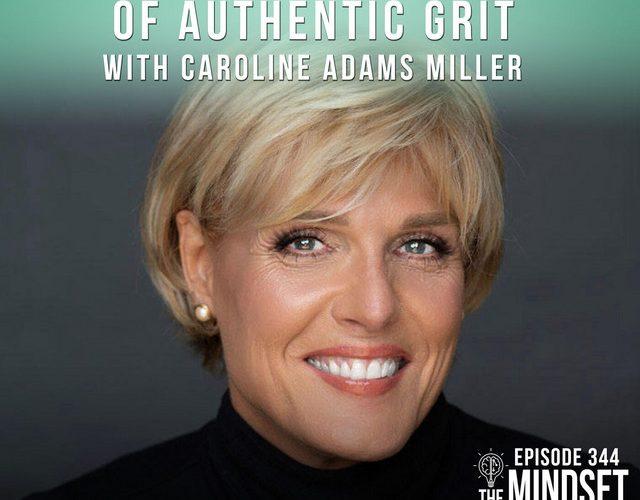Although I’ve made a specialty of coaching and teaching in the world of Positive Psychology and successful goal accomplishment in recent years, 25 years ago I didn’t meet the definition of happy or successful, nor would I say that I epitomized “grit,” which is the quality of resilient passion that refuses to quit in the face of setbacks.
But I had a lot of people fooled. Despite external signs of success, like excellent grades, a promising swimming career, and early admission to Harvard University, I was living in the suicidal undertow of bulimia, which was prevalent in the 1970’s, but which didn’t have a known “cure.” So although my talent had helped me to achieve visible signs of success, I still didn’t have the all-important strength of “follow through” because I’d never faced an opponent as daunting as my eating disorder – which was winning the battle for my life.
It was only after hitting my last bottom in early 1984 and starting the long, slow journey to recovery that I found hope and my best self, and along the way I developed “grit.” Although I didn’t know at that time there was a word to describe what I’d done by stringing together days, months, years and a generation of non-bulimic behavior in the face of temptation, setbacks and life upheavals, I’m convinced that it was only by developing defiant resilience to win that battle that I blossomed into someone who learned how to tackle other big goals and refuse to be a quitter in life.
“Grit” is defined by University of Pennsylvania researcher Angela Duckworth as “passion and perseverance in pursuit of long-term goals.” It has become the sexy word of the year, particularly since Duckworth won a MacArthur Genius Grant in 2013. It is sprinkled liberally throughout sports stories, commencement speeches, and any rendition of resilient behavior. I first learned about this concept when I returned to school to earn a Master’s degree in Applied Positive Psychology at the University of Pennsylvania in 2005, where Duckworth was doing her research with Marty Seligman. I was so taken with the idea of grit that I devoted an entire chapter to its importance in flourishing and goal-setting in my fifth book, “Creating Your Best Life” (Sterling 2009).
The term’s current popularity and prevalence belies how unique this character strength really is, however, and because it’s so important if you want to set and achieve challenging long-term goals – like ongoing recovery from any addiction, attaining higher education under adverse circumstances, or remaining committed to your own meaningful vision of your best life – we should take a look at how the cultivation of certain VIA strengths might lead to becoming grittier.
Although there are things we know about grit, there are some unanswered questions about how much of gritty behavior can be learned versus how much you might be born with. Duckworth has found that grit is a contagious quality, though, as she noted in a podcast interview with me about how West Point cadets with low grit scores are deliberately roomed with cadets with higher grit scores. Also, research on self-regulation has found that we can improve our storehouse of willpower by doing a variety of things – focusing on one willpower goal at a time, ingesting a teaspoon of sugar or sleeping when depleted, or being in the presence of disciplined people. Self-regulation is a key piece of being gritty, so if you can change that, it’s more evidence that grit may not be only reserved for the elite.
In the many years of working with and studying high performers, I’ve noticed that there are some VIA character strengths that are more likely to show up in a gritty person’s top five than others. If you need to cultivate grit, it might be worth paying attention to where these are in your lineup:
- Hope, optimism and future-mindedness. If you have hope that you will get up after being knocked down, that you’ll eventually find a way to succeed at your goals, and that you want to continue to aim for a bright future in spite of current setbacks, you are more likely to have grit.
- Self-regulation. The ability to delay gratification is key to avoiding temptation and remaining focused on a better future reward, but while this strength is important, it’s not enough by itself to be gritty.
- Zest. Duckworth has said that grit doesn’t measure passion as much as it measures “stamina,” which is often fueled by a contagious energy of joie de vivre, also known as zest. In my work, I’ve found that gritty people ask themselves “Why not?” instead of “Why?” which appears to be a mixture of zest and hope.
- Kindness. My observations of gritty people are that they turn towards others, instead of away, for several important reasons. First, there are no long-term goals that can be accomplished in a silo; in order to achieve mightily, you need a team around you, and if you are unkind, no one will want to be part of your effort. Also, from the University of Wisconsin has found that kindness interventions in the schools results in higher self-regulation (see above why this matters to grit).
- Bravery. Gritty people tackle big goals, sometimes against all odds including family support and available resources. But they choose to invest in themselves and find ways to keep going when it’s hard, often by developing mantras like “one day at a time,” or “when the going gets tough, the tough get going.” In doing so, they often develop followers who are awed by their toughness and unwillingness to accept defeat.
I’m giving a TEDx talk on grit on September 27th in New York City, and as part of it I’m issuing an “Authentic Grit Challenge” to see if changing several daily behaviors can improve your grit score. To sign up, click here.



